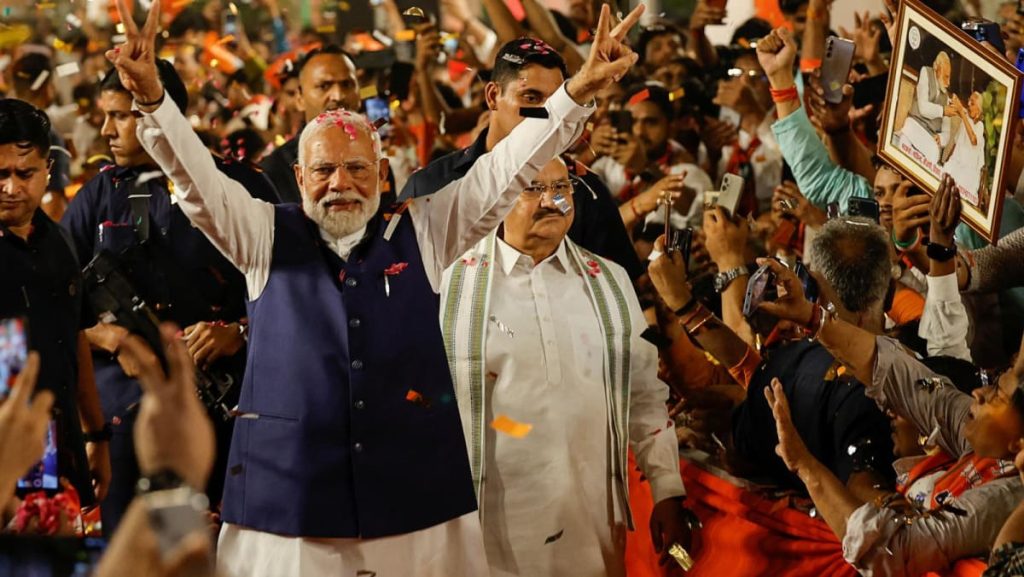India’s Prime Minister Narendra Modi secured a victory for his party and its allies in the recent elections, claiming a historical feat in the country’s history. However, despite this victory, the opposition managed to reduce the ruling party’s parliamentary majority, confounding predictions of a landslide win for Modi’s Hindu nationalist Bharatiya Janata Party (BJP).
The National Democratic Alliance (NDA), led by Modi, won the election with a surprisingly narrow majority, unlike the last two elections where the BJP had a stronger showing. In order to cross the 272 majority mark in the 543-seat lower house of parliament, the BJP will now need the support of its alliance partners, as they are currently leading in around 290 seats, according to the ongoing vote count.
Modi had set a target of more than 400 seats for his alliance, but fell short of this goal with the BJP itself leading in 239 seats, compared to 303 in the previous election. This shift in the BJP’s reliance on its coalition partners to form the government is seen as a setback, as previously the BJP could dictate terms with little consideration for its allies.
Experts suggest that now the NDA allies will have more leverage in policymaking and in the composition of the cabinet, as they will likely demand concessions for their support. Modi, known for his strong leadership and independence, may find this new dynamic challenging, as he has not had to rely on alliance partners in the past. It remains to be seen how Modi will navigate this new political landscape and whether he will be able to maintain his authority in the government.
The election results have raised questions about the future trajectory of Modi’s government and the BJP’s dominance in Indian politics. While the alliance managed to secure a victory, the reduced majority and increased reliance on partners indicate a shift in the political landscape. The opposition’s ability to reduce the ruling party’s stronghold shows a level of dissatisfaction among voters and suggests that Modi’s leadership may face more challenges in the future.
Overall, while Modi’s NDA secured a win in the recent election, the reduced majority and increased reliance on alliance partners signal a potential shift in Indian politics. Modi will need to navigate this new political landscape carefully to maintain his authority and ensure the stability of his government. The election results have implications for future policymaking and the composition of the government, as alliance partners may demand concessions in exchange for their support.













